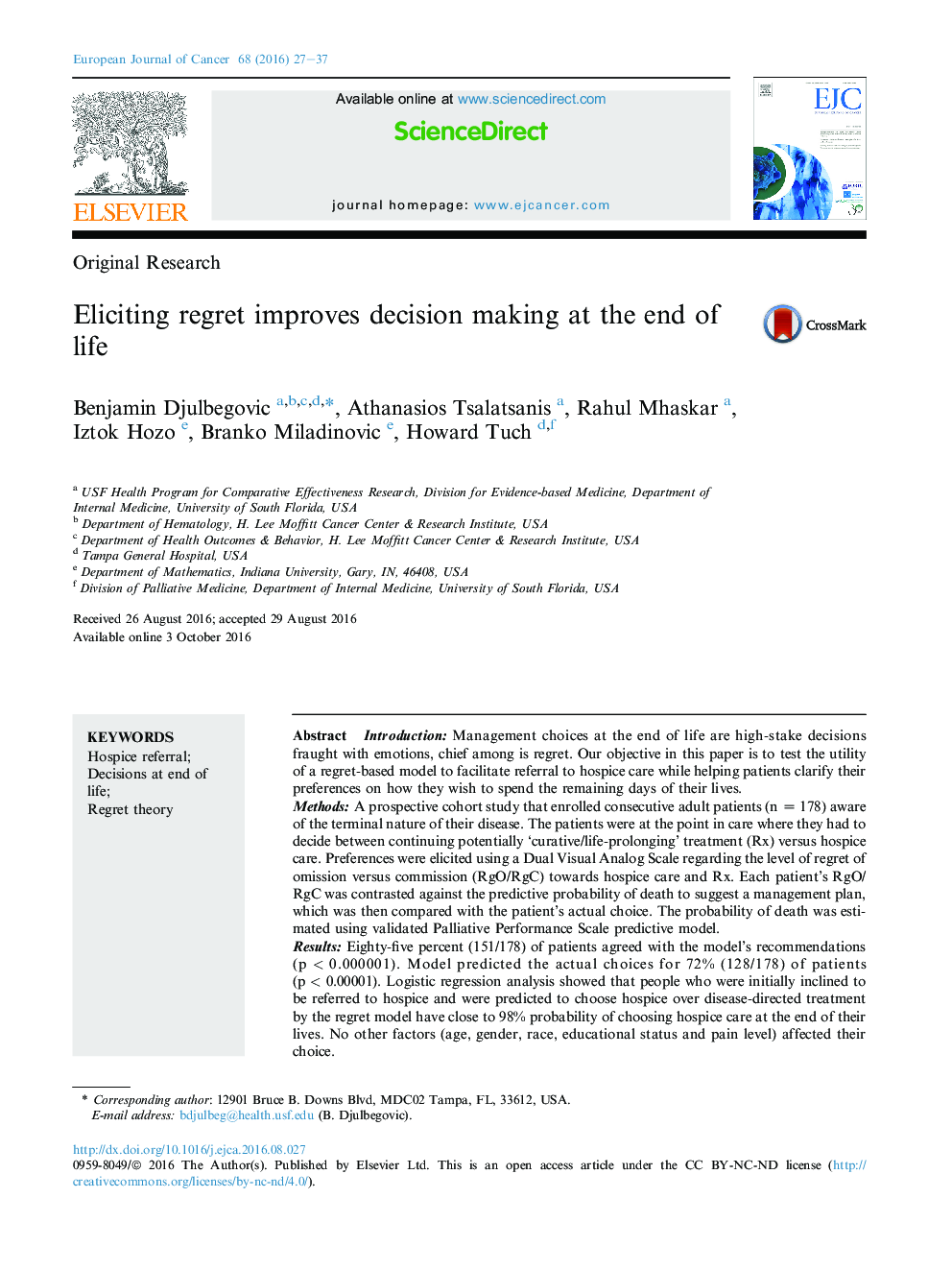| کد مقاله | کد نشریه | سال انتشار | مقاله انگلیسی | نسخه تمام متن |
|---|---|---|---|---|
| 5526563 | 1547066 | 2016 | 11 صفحه PDF | دانلود رایگان |
- End-of-life decisions are fraught with emotions chief among is regret.
- A regret-based model can facilitate end-of-life choices and hospice referral.
- Eighty-five percent of patients agreed with the model's recommendations.
- The regret model predicted actual choices for 72% of patients.
- The regret model is both descriptively and prescriptively valid.
IntroductionManagement choices at the end of life are high-stake decisions fraught with emotions, chief among is regret. Our objective in this paper is to test the utility of a regret-based model to facilitate referral to hospice care while helping patients clarify their preferences on how they wish to spend the remaining days of their lives.MethodsA prospective cohort study that enrolled consecutive adult patients (n = 178) aware of the terminal nature of their disease. The patients were at the point in care where they had to decide between continuing potentially 'curative/life-prolonging' treatment (Rx) versus hospice care. Preferences were elicited using a Dual Visual Analog Scale regarding the level of regret of omission versus commission (RgO/RgC) towards hospice care and Rx. Each patient's RgO/RgC was contrasted against the predictive probability of death to suggest a management plan, which was then compared with the patient's actual choice. The probability of death was estimated using validated Palliative Performance Scale predictive model.ResultsEighty-five percent (151/178) of patients agreed with the model's recommendations (p < 0.000001). Model predicted the actual choices for 72% (128/178) of patients (p < 0.00001). Logistic regression analysis showed that people who were initially inclined to be referred to hospice and were predicted to choose hospice over disease-directed treatment by the regret model have close to 98% probability of choosing hospice care at the end of their lives. No other factors (age, gender, race, educational status and pain level) affected their choice.ConclusionsUsing regret to elicit choices in the end-of-life setting is both descriptively and prescriptively valid. People with terminal disease who are initially inclined to choose hospice and do not regret such a choice will select hospice care with high level of certainty.
Journal: European Journal of Cancer - Volume 68, November 2016, Pages 27-37
